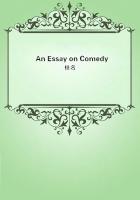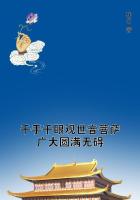In so far as this is true, it also has been a commonplace since Adam Smith. How far it is true will be shown in Part III.
Law No. 3. "Distance and transport are the chief causes which hinder or facilitate the co-operation of the productive forces" {91}.
Law No. 4. "The industrial state has an incomparably greater population capacity than the agricultural state" {107}.
Law No. 5. "In the economy nothing takes place without a material interest" {126}.
These are the "natural laws" {4, 5} on which Herr Dühring founds his new economics. He remains faithful to his method, already demonstrated in the section on Philosophy. In economics too a few self-evident statements of the utmost banality -- moreover quite often very ineptly expressed --form the axioms which need no proof, the fundamental theorems, the natural laws. Under the pretext of developing the content of these laws, which have no content, he seizes the opportunity to pour out a wordy stream of economic twaddle on the various themes whose names occur in these pretended laws -- inventions, division of labour, means of transport, population, interests, competition, and so forth -- a verbal outpouring whose flat commonplaces are seasoned only with oracular grandiloquence, and here and there with inept formulations or pretentious hair-splitting over all kinds of casuistical subtleties. Then finally we reach rent of land, earnings of capital, and wages, and as we have dealt with only the two latter forms of appropriation in the preceding exposition, we propose now in conclusion to make a brief examination of the Dühringian conception of rent.
In doing this we shall not consider those points which Herr Dühring has merely copied from his predecessor Carey; we are not concerned with Carey, nor with defending Ricardo's views on rent of land against Carey's distortions and stupidities. We are only concerned with Herr Dühring, and he defines rent as "that income which the proprietor as such draws from the land"{D. C. 156}.
The economic concept of rent of land, which is what Herr Dühring is to explain, is straightaway transferred by him into the juridical sphere, so that we are no wiser than we were before. Our constructor of deeper foundations must therefore, whether he likes it or not, condescend to give some further explanation. He compares the lease of a farm to a tenant with the loan of capital to an entrepreneur, but soon finds that there is a hitch in the comparison, like in many others.
For, he says, "if one wanted to press the analogy further, the earnings left to the tenant after payment of rent must correspond to the balance of earnings of capital left with the entrepreneur who puts the capital to use after he has paid interest. But it is not customary to regard tenants' earnings as the main income and rent as a balance... A proof of this difference of conception is the fact that in the theory of land rent the case of management of land by the owner is not separately treated, and no special emphasis is laid on the difference between the amount of rent in the case of a lease and where the owner produces the rent himself. At any rate no one has found it necessary to conceive the rent resulting from such self-management of land as divided in such a way that one portion represents as it were the interest on the landed property and the other portion the surplus earnings of enterprise. Apart from the tenant's own capital which he brings into the business, it would seem that his specific earnings are mostly regarded as a kind of wages. It is however hazardous to assert anything on this subject, as the question has never been raised in this definite form. Wherever we are dealing with fairly large farms it can easily be seen that it will not do to treat what are specifically the farmer's earnings as wages. For these earnings are themselves based on the antithesis existing in relation to the rural labour-power, through whose exploitation that form of income is alone made possible. It is clearly a part of the rent which remains in the hands of the tenant and by which the full rent , which the owner managing himself would obtain, is reduced" {157-58}.
The theory of land rent is a part of political economy which is specifically English, and necessarily so, because it was only in England that there existed a mode of production under which rent had in fact been separated from profit and interest. In England, as is well known, large landed estates and large-scale agriculture predominate. The landlords lease their land in large, often very large, farms, to tenant-farmers who possess sufficient capital to work them and, unlike our peasants, do not work themselves but employ the labour of hands and day-labourers on the lines of full-fledged capitalist entrepreneurs. Here, therefore, we have the three classes of bourgeois society and the form of income peculiar to each: the landlord, drawing rent of land; the capitalist, drawing profit; and the labourer, drawing wages. It has never occurred to any English economist to regard the farmer's earnings as a kind of wages, as seems to Herr Dühring to be the case; even less could it be hazardous for such an economist to assert that the farmer's profit is what it indisputably, obviously and tangibly is, namely, profit on capital. It is perfectly ridiculous to say that the question of what the farmer's earnings actually are has never been raised in this definite form. In England there has never been any necessity even to raise this question; both question and answer have long been available, derived from the facts themselves, and since Adam Smith there has never been any doubt about them.















